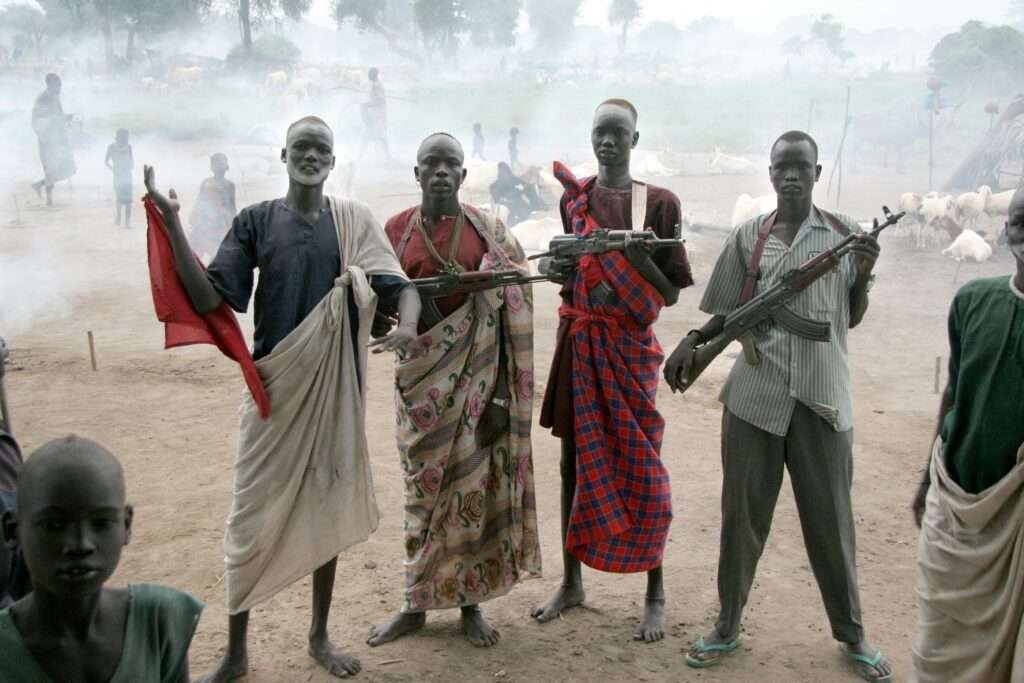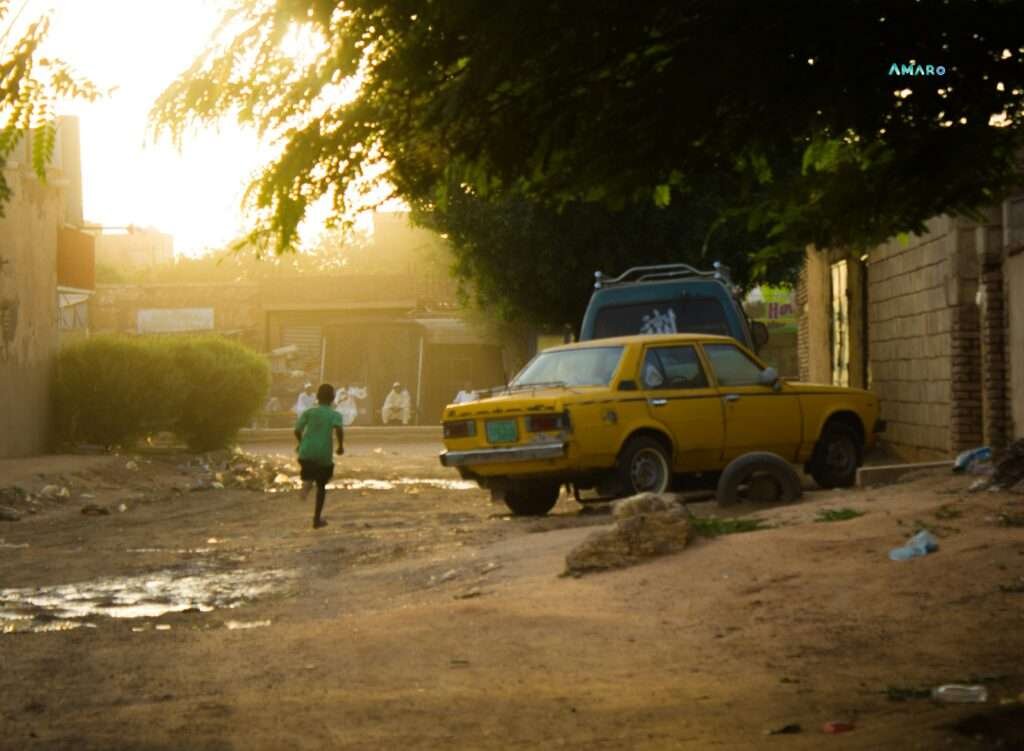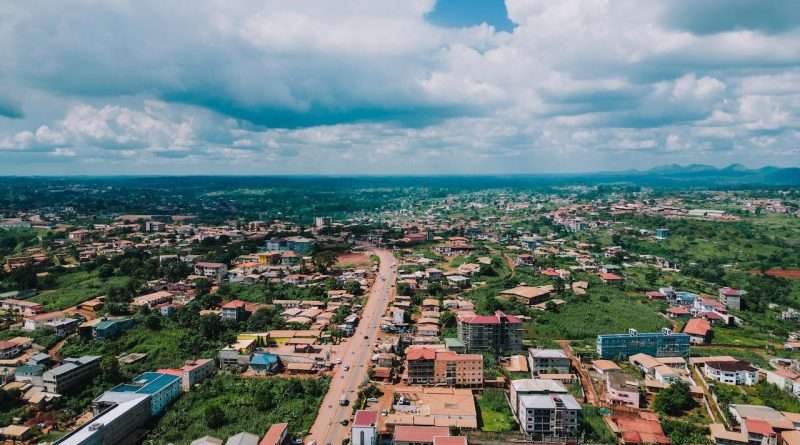The Poorest Nation in the World: South Sudan
Why is South Sudan the poorest nation?
Chronic civil war, an overreliance on oil exports, entrenched corruption, and weak institutions have stifled economic diversification and left over 80% of citizens below the extreme poverty line.
Why South Sudan Ranks Poorest by GDP Per Capita
GDP per capita divides a nation’s total economic output by its population, showing the average income or production per person. South Sudan’s figure—just $251.49—tells a deeper story: how war, misallocation of resources, and crumbling infrastructure squeeze every individual’s opportunities. Picture a country where:
- Conflict Ravages Production: Repeated clashes displace farmers, destroy crops, and halt local markets.
- Oil Wealth Mismanagement: Instead of roads and hospitals, revenues bolster armed factions and entrenched elites.
- Infrastructure Deficits: With only ~10,000 km of paved roads and no railways, transportation costs skyrocket, isolating communities.
These structural failures shrink the national “economic pie.” When that small pie is split among 11 million people, each slice becomes alarmingly thin—even before you factor in displaced populations and ongoing humanitarian emergencies.
| Indicator | Value |
|---|---|
| GDP per Capita (USD) | $251.49 |
| Human Development Index Rank | 191st |
| Extreme Poverty Rate (<$1.90/day) | 80% |
Historical Context & Nationhood

From the moment of its birth, South Sudan faced a daunting state‑building challenge. Independence in 2011 brought euphoria, but the absence of basic institutions—no central bank, no robust civil service, no functional tax authority—set a fragile foundation. Economic expectations, fueled by oil discoveries, collided with grinding realities:
- 2011 – New State, No Institutions: South Sudan secedes after over 20 years of war. Yet without a bureaucracy or stable revenue system beyond oil exports, government credit and public services remained virtually non‑existent.
- 2013 – War Returns: Political rivalry ignited fresh civil conflict. Budgets meant for health and education vanished into arms purchases, while aid agencies took on roles governments should fulfill.
- 2018 – Peace, Not Prosperity: The revitalized peace deal prioritized power‑sharing over economic governance. Civil servants often went months without pay; project funds stalled amid bureaucratic gridlock.
- 2020s – Governance Gaps Persist: Elections postponed, legal frameworks incomplete, and debates over oil revenue sharing left investors wary. Agriculture and infrastructure projects stalled for lack of clear policy.
- 2025 – Fragile Stability: Ceasefires largely hold, but public trust is low. Without credible institutions to manage resources, mobilize taxes, and enforce contracts, economic activity remains constrained.
The Resource Curse: Oil & Conflict
Oil was the driving force behind South Sudan’s independence hopes—yet it quickly became its greatest vulnerability. Discovered in the late 1970s but only tapped at scale after 2011, oil revenues promised development but instead:
- Fuel Armed Rivalries: Competing factions diverted oil income to purchase weapons, reigniting conflict in Unity and Upper Nile states.
- Stoke Corruption: With weak oversight, senior officials siphoned off up to 40% of oil receipts, according to U.N. monitors.
- Undermine Budget Planning: Volatile oil prices led to erratic budget releases—health and education funding often cut mid‑year.
Rather than financing schools and clinics, oil profits financed patrol boats and fighter jets. Meanwhile, communities around oil fields saw few benefits—local roads remain unpaved, and job opportunities are scarce.
| Metric | Value / Impact |
|---|---|
| Oil Exports (% of total exports) | 96% |
| Government Revenue from Oil | ≥ 90% |
| Estimated Misappropriation of Oil Funds | ~40% (U.N. Panel) |
| Budget Volatility (Oil Price Fluctuations) | ± 30% swing year‑to‑year |
Agriculture, Infrastructure & Economic Disruption

Agriculture is the livelihood backbone for 80% of South Sudan’s population, yet it contributes only 10% to GDP due to years of neglect and conflict. Poor yields, lack of investment, and climate extremes have turned fertile lands into zones of uncertainty:
- Subsistence Over Commercial: Most farmers cultivate small plots of sorghum and maize without access to improved seeds, fertilizers, or irrigation—yielding 50–60% below regional averages.
- Climate Shocks: Extended droughts in northern states and flash floods along the Nile corridors destroy up to 40% of annual harvests.
- Market Isolation: With just 5 km of paved road per 1,000 sq km, moving goods to urban centers costs two to three times more than in neighboring countries.
Meanwhile, decades of war left transport networks in ruins. Bridges washed away, rail lines never built, and trade routes blocked by insecurity. As a result:
- Input Shortages: Farm tools, fuel, and spare parts must be flown or driven on perilous dirt tracks—raising costs by 150%.
- Price Volatility: Staple food prices can spike up to 200% in lean seasons, fueling both hunger and inflation.
Without resilient transport and reliable markets, even good harvests fail to translate into incomes, reinforcing rural poverty and dampening incentives for agricultural investment.
Humanitarian Crisis & Development Indicators
Years of conflict and systemic underinvestment have devastated public health and social services. Access to basic needs remains alarmingly low, fueling morbidity and mortality while hindering human capital formation.
- Child Stunting: 24% of children under five suffer chronic undernutrition, impairing physical and cognitive development.
- Child Wasting: 13% of young children face acute malnutrition, surpassing emergency thresholds.
- Infant Mortality: 59.7 per 1,000 live births, among the highest globally.
- Displacement: 2.2 million internally displaced persons strain fragile host communities and services.
- Education Gap: Net primary enrollment rate at 27%, with girls disproportionately excluded.
- Healthcare Access: Only one physician per 65,000 people; half the population lives over 5 miles from any health facility.
The following table summarizes these critical indicators:
| Indicator | Value |
|---|---|
| Child Stunting Rate | 24% |
| Child Wasting Rate | 13% |
| Infant Mortality Rate | 59.7 per 1,000 |
| Internally Displaced Persons | 2.2 million |
| Primary School Enrollment | 27% |
| Physicians per 10,000 People | 0.15 |
International Aid & Policy Responses
Since independence, South Sudan has received substantial international assistance aimed at peacebuilding, humanitarian relief, and economic recovery. Yet translating funds into lasting progress remains a challenge:
- UNMISS Peacekeeping: Over 15,500 troops deployed to protect civilians and support implementation of peace agreements, but limited coverage in remote conflict zones.
- World Bank & IMF: Approximately US $1.2 billion (2021–2024) in concessional loans and grants for infrastructure rehabilitation, public financial management reforms, and resilience programs, though disbursement delays hinder timely impact.
- USAID & EU Humanitarian Aid: Combined US $900 million annually for food security, health, and water-sanitation projects—reaching over 4.5 million people but facing access restrictions in insecure areas.
- Regional and AU Initiatives: IGAD’s Conflict Early Warning System aids mediation; African Union technical support bolsters anti-corruption frameworks and civil service capacity.
Despite these efforts, effectiveness is undermined by:
- Coordination Gaps: More than 50 NGOs and UN agencies operate with overlapping mandates, leading to duplication and uneven service delivery.
- Aid Diversion: Up to 20% of aid supplies diverted to informal markets or armed groups, reducing support for intended beneficiaries.
- Weak Absorptive Capacity: Government institutions lack the manpower, systems, and transparency mechanisms to fully utilize funding and ensure accountability.
Moving forward, aligning international assistance with national reform priorities—strengthening public financial management, enhancing local governance, and promoting community-led development—will be critical to convert aid into sustainable outcomes.
Challenges & Pathways Forward
South Sudan stands at a crossroads: lingering fragility versus the promise of stability. Key obstacles must be addressed simultaneously to transform the economy:
- Peace Implementation: Ensure full rollout of the Revitalized Peace Agreement by demobilizing armed groups and integrating forces into unified security structures.
- Institution Building: Establish a functional central bank, strengthen the Ministry of Finance, and operationalize transparent budget processes to restore fiscal credibility.
- Anti-Corruption Reforms: Join and comply with the Extractive Industries Transparency Initiative (EITI), audit oil revenues, and prosecute high-level embezzlement to rebuild public trust.
- Economic Diversification: Invest in agro-processing zones, small-scale fisheries, and livestock value chains—reducing oil dependency and expanding job opportunities.
- Infrastructure Rehabilitation: Reconstruct key highways and bridges, expand rural feeder roads, and develop renewable energy to lower transport costs and spur commerce.
- Human Capital Development: Prioritize education and healthcare spending to improve literacy, skills, and workforce productivity—creating a more resilient socio-economic base.
By sequencing reforms—peace first, then governance, then economic investment—South Sudan can gradually shrink the gap between its potential resources and the actual living standards of its people.
FAQ
How many people live in extreme poverty in South Sudan?
Approximately 80% of South Sudan’s population subsists on less than $1.90 per day, reflecting the depth of economic hardship.
What is South Sudan’s GDP per capita?
As of May 2025, GDP per capita stands at just $251.49, one of the lowest globally due to limited economic diversification.
Why does South Sudan rely so heavily on oil?
Oil accounts for over 90% of government revenue and 96% of exports, creating a classic resource curse where other sectors are neglected.
How widespread is child malnutrition?
Chronic malnutrition affects 24% of children under five (stunting) and 13% suffer acute malnutrition (wasting), undermining future human capital.
What can improve South Sudan’s development prospects?
Key steps include full peace agreement implementation, anti-corruption reforms (EITI membership), infrastructure rehabilitation, and investment in education and healthcare.
What Did We Learn Today?
- South Sudan’s GDP per capita of $251.49 underscores its extreme poverty.
- Decades of civil war and an unregulated resource curse fuel ongoing instability.
- Humanitarian indicators—child stunting, infant mortality, water access—remain among the worst globally.
- International aid is vital but must be coupled with robust governance reforms.
- Peace implementation, anti‑corruption measures, and economic diversification are key to sustainable progress.

